A Buddha Bro blocked me on “X” over the Israel/Palestine conflict. I had assumed we’d be able to dialogue across the polarization. We’re both Buddhist meditation teachers sharing a common lineage, friends, and mentors. We’ve both built online platforms dedicated to raising consciousness and culture. I’m half Jewish and he’s a quarter Palestinian. And we both grew up in the American South learning how to code-switch in a cultural milieu potholed with antisemitism and islamophobia.
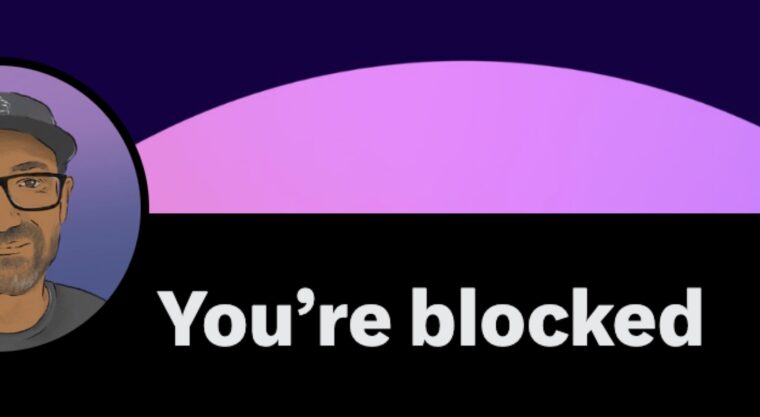
We had the perfect skill stack for tackling this most thorny conflict of our time… or so I thought. But there’s something different about this latest iteration of the Israel/ Palestine conflict, at some point unbeknownst to me, the Israel/Palestine conflict became the place where dialogue goes to die.
Reaching Across The Polarized Divide
There is a Buddhist meditation teacher who has been on my radar for some years because of his good and early work in the podcasting space. We had never met but I had tracked him a bit because we’re both in the meditation “biz”.
When I noticed his posts on X advocating for the Palestinian cause, it became clear that we shared one more piece in our similar perspectival stacks—a familial connection to the generational conflict between Israel and Palestine, albeit on opposite sides.
So when I saw this teacher’s posts on X addressing this perpetual conflict, I respectfully pushed back from my perspective. Shortly after, I was pleasantly surprised when he reached out in a DM to connect across the polarized divide.
The “Wicked Problem” Dialogue
Our initial meeting went well and we could relate to each other’s lived experiences. I offered him to join me on a live panel discussion I hosted called “Wicked Problem Conversations – Israel/Palestine WTF?”, moderated by a mutual friend and professional mediator, Diane Musho Hamilton Roshi.
We were joined by other panelists who were skilled at inhabiting multiple perspectives and could speak from personal experience on both sides of the issue. We did not agree on everything, but managed to keep the dialogue on the rails, and by the end, I felt more connected to everyone than I did before from the outset.
If nothing else, it was a small win for dialogue. Until it wasn’t.
Blocked On “X”
As the months passed and the horror of war continued to unfold, the increasingly hyper-charged polarization of this conflict played out worldwide. In this context, I’d regularly see my colleague’s posts on X advocating for the Palestinian cause, and from time to time I’d respectfully jump into the comments where I felt he was not holding Hamas to account for their responsibility in this ongoing war.
At the height of the “tentifada” protests at American university campuses, senior American Buddhist teachers Joan Halifax Roshi and Jon Kabot-Zinn posted on X their support for the student-occupied encampments (they said it reminded them of the ’60s).
I respectfully commented on their posts saying while taking an anti-war stand based on Buddhist principles of non-violence is admirable, doing so without condemning pro-war Hamas and calling for the return of the hostages is a performative contradiction.
My new friend must have seen these because shortly afterward he sent me a DM saying he was blocking me on X. He said he refused to associate with me because of what amounted to my one-sidedly defending Israel and enabling genocide on innocent people in Gaza.
Death Of Dialogue As A Fait Accompli
So, the rules had changed at some point and I didn’t get the memo. The message I was getting was that any discussion on Israel/Palestine is a non-starter unless I concede to this teacher’s claims that the Palestinians are the historical victims and my government is committing genocide on his ancestral people.
That was the pound of flesh I needed to offer up. I needed to subscribe to the narrative of the “river to the sea” crowd as the only factual discourse, or it was the end of the discussion. And of course, you can never question or criticize any actors in the free Palestine movement… including the extremist positions of Hamas.
I’m the first to admit that there is plenty to criticize regarding Israel’s policies towards the Palestinians (West Bank occupation, the settlements and settler violence, land grabs, extrajudicial arrests, etc.). But any discussion of these critical points of contention is moot because the “pound of flesh” purity test renders it all irrelevant.
It’s the death of dialogue as a fait accompli.
The Path Of Polarization
There are times when the collective trauma of the Israel/Palestine conflict is just too painful for any possible dialogue. This has certainly been my experience, especially in the traumatic aftermath of Oct. 7th. I imagine this is the case with my former colleague, but honestly, I don’t know.
However, my personal and professional convictions lie in refusing to accept polarization as the status quo. Rather, my practice obligates me to stay open to the incredibly painful friction of two opposing truths. This is the only way a true “non-zero-sum” solution to this conflict may emerge.
That being said, I am poignantly aware of how difficult it is to stay connected in conflict. Our collective human history is an ongoing tragic proof that polarization only perpetuates the suffering we inflict upon each other. This is certainly the case in the Israel/Palestine conflict.
However, if we accept this as the status quo then we must ask where this path of polarization will lead us… and is that acceptable?
Our Dialectical Challenge
As the trauma of this ongoing conflict drives us toward further polarization, we must see that accepting the death of dialogue leads to our greatest collective peril.
As Diane Musho Hamilton writes in her book on conflict resolution Everything Is Workable “There are 3 sides of every story: yours, mine, and the truth.” It is only by shifting our perspective from disconnected polarization to a connected dialectic that we have the best chance of finding the truth, and form there a just resolution.
The resiliency of our human spirit lies precisely in our capacity to rise above our baser instincts, and to heal our generational trauma… together. The path we find ourselves on going forward must include our capacity to connect, listen, dialogue, and heal with each other.
Anything less is going backward. Anything less is passing on this generational conflict to our children.
Like the American author and meditation teacher Sam Harris says “everything from the maintenance of civilization to the moral progress of our species depends on a series of successful conversations.”
Will refusing to accept polarization and the death of dialogue undo the Gordian knot that is the Israel/Palestine conflict? I don’t know. But knowing where the death of dialogue inevitably leads us, do we have any other choice?
May we all have successful conversations.
Miles Kessler is an American teacher of meditation and Aikido who lives in Tel Aviv, Israel. He is a dual lineage holder in Buddhist meditation and the Japanese martial art of Aikido. Miles is the founder of “Aikido Without Borders”, a non-profit organization using Aikido to foster cross-cultural understanding between Israelis and Palestinians. He has been teaching meditation, Aikido, and the embodiment of spiritual awakening worldwide for over 30 years.

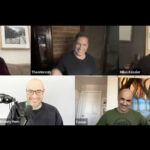
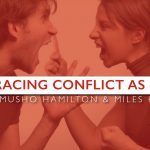
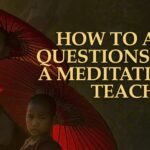
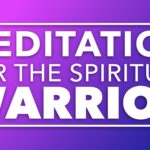
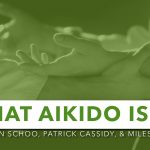
Please note: I reserve the right to delete comments that are offensive or off-topic.